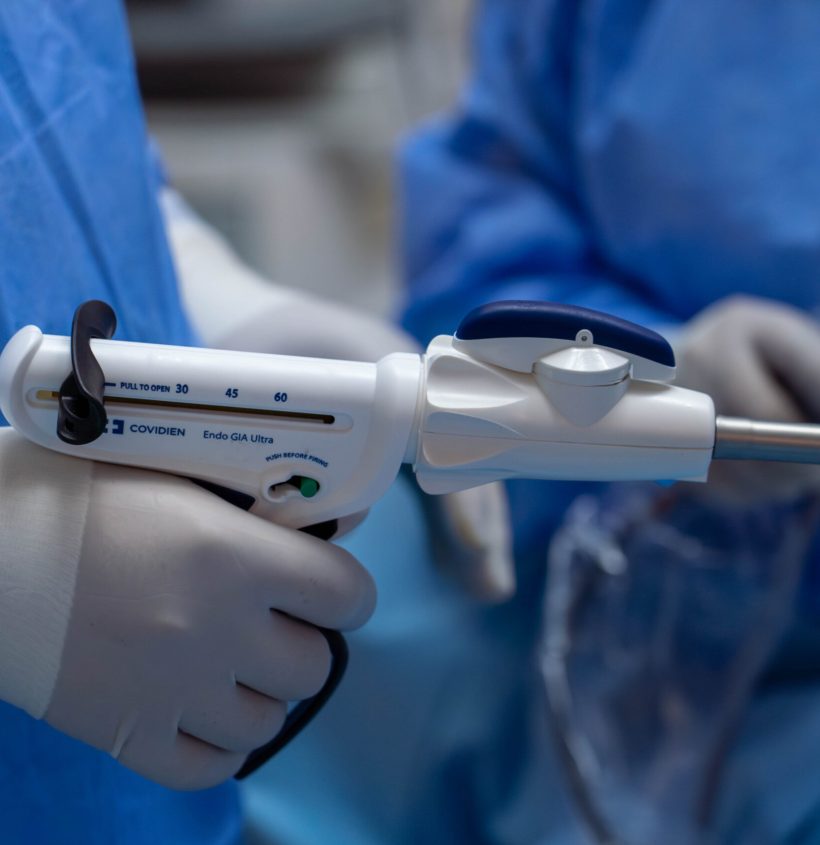Take control of your current and future health. Our bariatric surgery program, led by Board Certified UAB surgeon, Dr. Quince Gibson, offers comprehensive surgical and weight loss services.
If you have been struggling with obesity for years and have not seen great weight loss success with diet and exercise, bariatric surgery may be a great option for you.
Obesity is linked to several life-threatening health conditions, and it’s the second highest modifiable risk factor associated with cancer. Bariatric surgery has been shown to reverse many of these serious health conditions.
And while weight loss is one outcome of bariatric surgery, patients also see improvement or resolution of conditions such as diabetes, high blood pressure, high cholesterol, sleep apnea, reflux/GERD, heart disease, fatty liver, polycystic ovary syndrome and joint pain.



The first step is to call the office at 334.287.2842 to schedule a new patient appointment with Dr. Gibson, to discuss your medical history, interest in surgery, and any questions you may have.
Our clinic will also call your insurance company to verify that you have bariatric surgery coverage and benefits. Most insurance plans will cover the surgery minus your copays or out-of-pocket expenses, but a few insurance plans do not cover bariatrics at this hospital; in that case, we will discuss options for self-pay programs with you.
You will be set up with our dietician and nutrition counselors who will assess your current eating habits and establish a plan for you to move forward and eat better. This is required by most insurance companies. A three to six-month supervised diet and eating behavior counseling program is required and highly recommended. This new eating plan will help you to establish new dietary and health habits that will help make the surgery a success!
Dr. Gibson will give you a checklist of items to complete for the surgical workup. This includes labs, EKG, upper endoscopy (EGD), and psychological clearance. Additionally, you might need a sleep study, cardiology heart clearance, or other medical testing as indicated. Once this workup process is complete, you will be scheduled for your surgery date pending approval by your insurance company. Our program will help guide you along the way through each step to make sure you stay on track.
The typical hospital stay after bariatric surgery is one or two nights. When you go home from surgery, you will remain on a liquid diet for a few weeks, then transition to soft, squishy foods, and eventually resume solid food after a month. This slow diet transition is necessary as your stomach heals. You are encouraged to walk as much as possible.
There are two major Bariatric Surgery procedures. Each patient is different and there are many factors involved in outcomes. However, studies show that most candidates for surgery can expect to lose between 48-81% of Excess body weight (Current weight minus ideal weight) depending on the procedure performed. As an example, a patient who weighs 300lb with an ideal body weight of 150lb may expect to lose between 72lb and 121lb. Again, there are many factors involved in the exact outcome for each patient.

© 2024 All Rights Reserved.